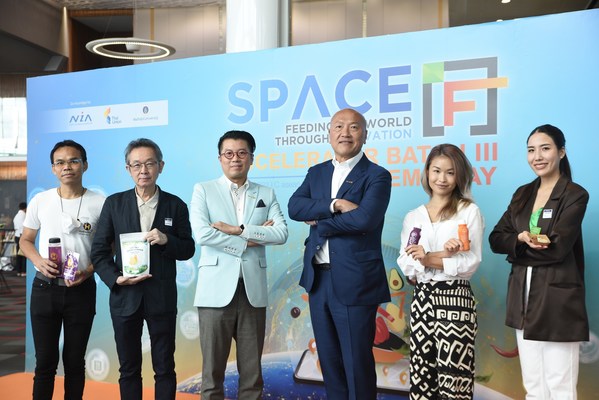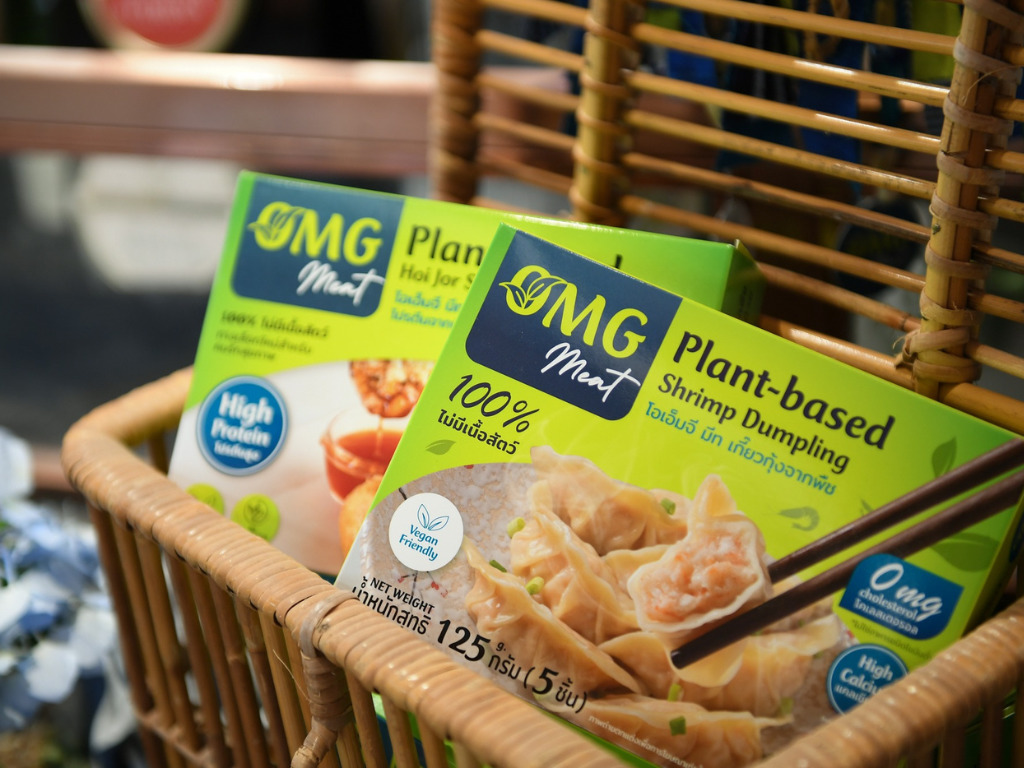3 Mins Read
Thailand’s National Innovation Agency (NIA) SPACE-F project is aimed at bringing investment opportunities to the Thai food tech sector and creating the Silicon Valley of food for Southeast Asia.
According to Dr. Pun-Arj Chairatana, Executive Director of NIA, food security has been a challenge around the world in the wake of the pandemic. Likewise, the rapidly increasing global population, climate change, and a decline in agricultural labor, along with food waste, have made food security a “serious issue” that needs to be solved.
The agency launched the SPACE-F program in 2019 to incubate and accelerate the growth of Thailand’s food tech startups through mentorships, business connections, and co-working programs and it continues its support in scaling up the sector through its 2022 edition of SPACE-F.

Dr. Chairatana points to the State of Food Security and Nutrition in the World 2022 report from the UN, which showed ten percent of the global population—more than 800 million people—are now suffering from hunger.
Thailand has sufficient raw materials to serve growing demands, Dr. Chairatana says. And it also has a top-notch logistics service. “These attributes make the Thai food industry exceptional and position Thailand as the kitchen of the world,” Dr. Chairatana says. But, he says, utilization of technology and innovation is lacking.
Accelerating food tech growth
“Most of the players in the sector are stuck at the SMEs (small and medium-sized enterprises) level where their focuses are mainly on domestic consumption. The NIA, therefore, stepped in to encourage the use of innovation in this particular industry. Intending to feed the world through innovation, the ‘SPACE-F’ project has initiated in 2019 to incubate and accelerate the growth of FoodTech startups in Thailand,” Dr. Chairatana says.
“The project brings together FoodTech startups and corporates through innovative mentorship, business connections, and a co-working program. SPACE-F provides a prominent platform to encourage entrepreneurial startups to embrace deep tech and innovation to bring advancement to their business and the food industry. Selected startups then will be mentored to take on Southeast Asian and global markets,” he said.
The SPACE-F project says it has facilitated a suitable and conducive ecosystem for the development of deep tech for the food industry. Now, it’s looking to encourage the creation of innovative products and services. “Innovative service helps attract joint venture investment, and enhance competitiveness as most competitors are often focused solely on innovative manufacturing,” it says.

It will continue to provide mentorship for startups through its programs ranging from the Incubator for new face startups and the Accelerator mentorship that speeds the growth of startups by adding value to the existing business.
A sustainable food system
With Covid restrictions easing, it’s also looking to attract foreign food techs to Bangkok with funding from Thai companies. “This will enable Thai entrepreneurs and startups to use more of deep-tech, learn international business models, and exchange innovative knowledge that is crucial for the sustainable growth of their food businesses.”
Innovation is happening from established Thai-based companies, too. Earlier this year, leading seafood producer Thai Union launched a plant-based shrimp alternative.
“By the end of 2025, the FoodTech industry is expected to be worth 7.76 trillion baht,” Dr. Chairatana said. “And with our vision and commitment to supporting the startup ecosystem, NIA will continue to drive Bangkok towards becoming the Food Silicon Valley,” he said.
Since SPACE-F launched three years ago, it has mentored more than 50 FoodTech startups. “Graduates from the project are now blossoming and have received continued investment from the private sector, especially the Alternative Proteins,” Dr. Chairatana said. “These new economic warriors will play pivotal roles in shaping the sustainable future of global food security.”
Lead photo by Evan Krause on Unsplash




